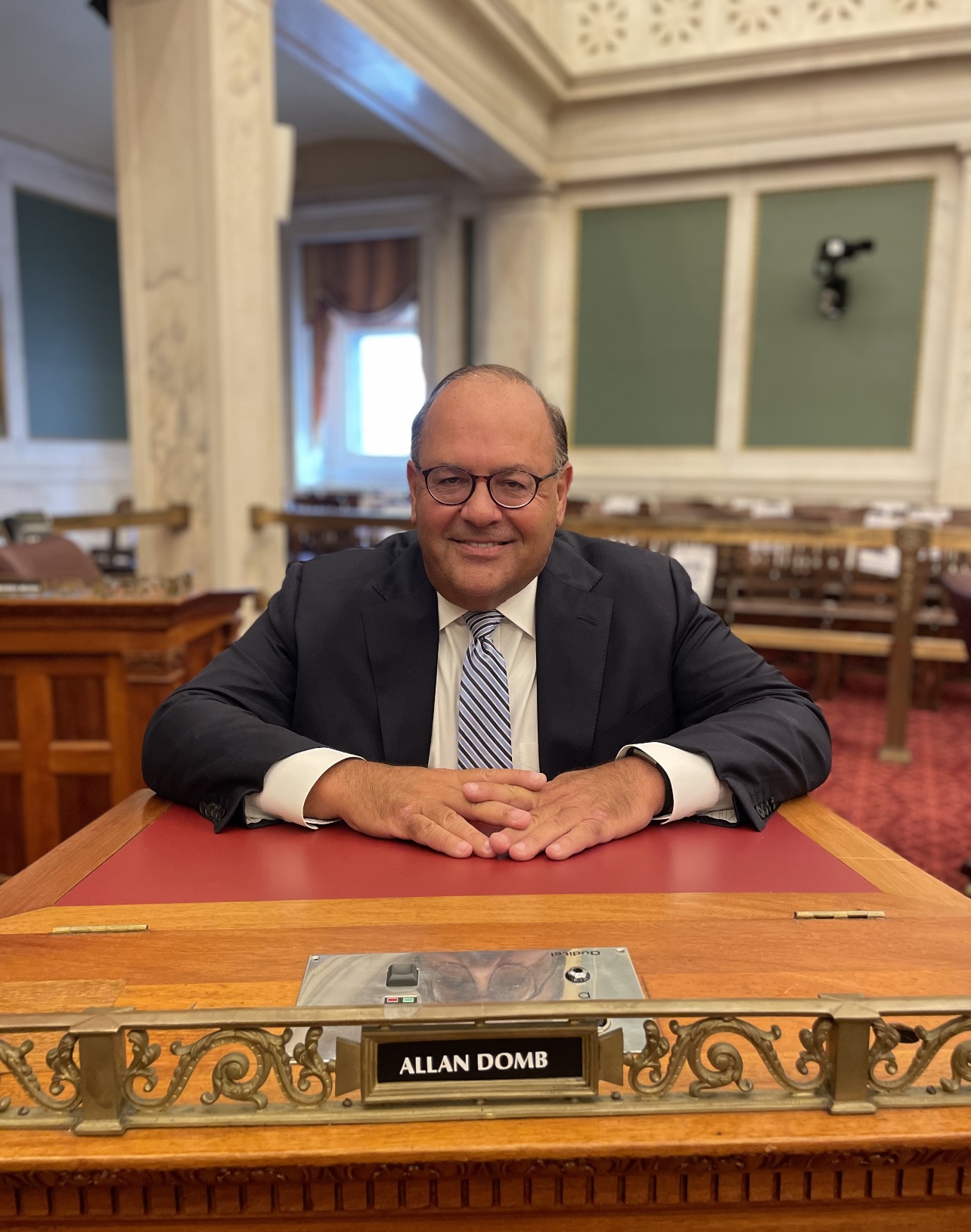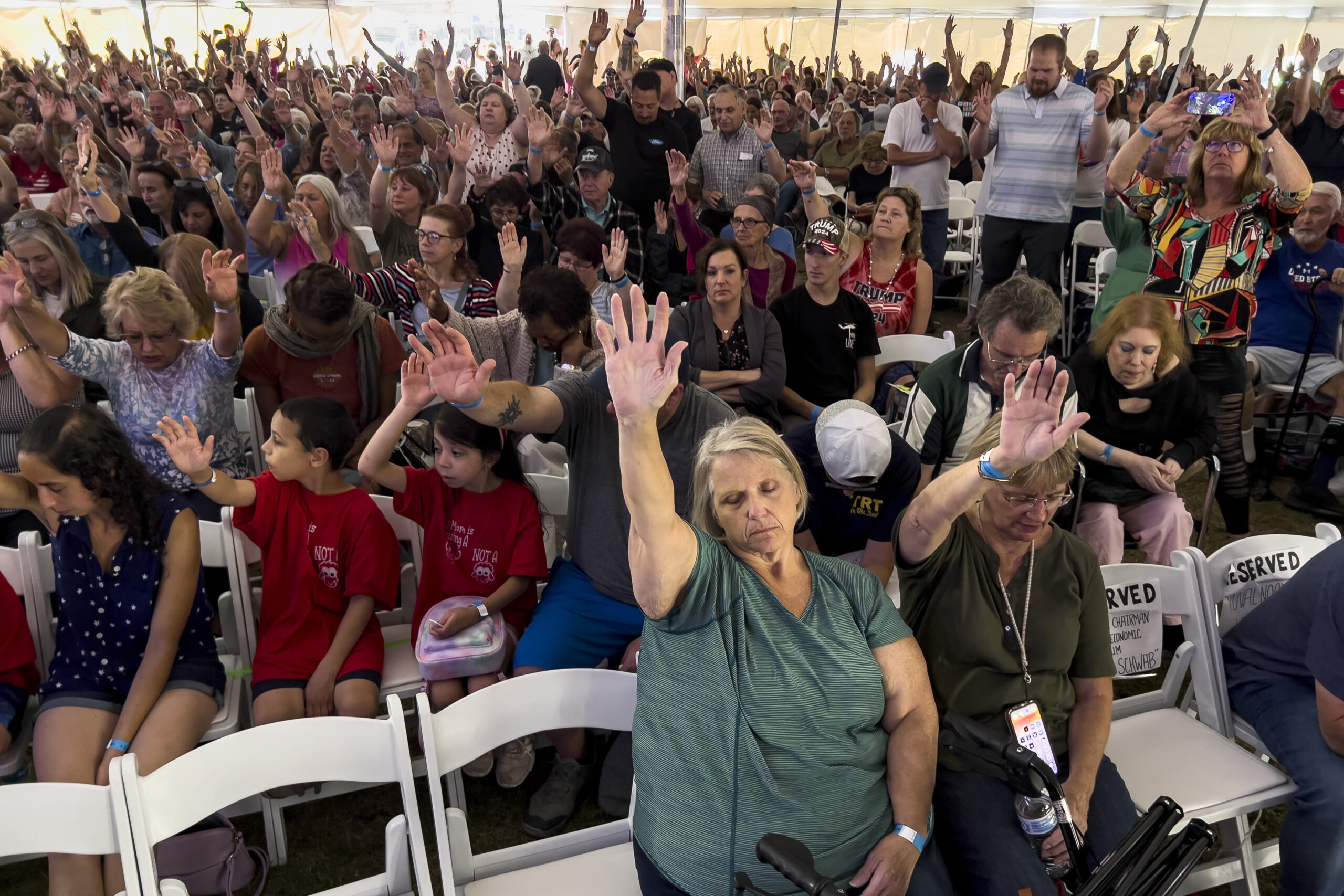As September came to a close, Philadelphia Mayor James Kenney attended the funeral of Tiffany Fletcher, a Department of Parks & Recreation employee who was killed by a stray bullet while on the job. The next day he signed an executive order banning guns from city rec centers, playgrounds, and pools.
“If I could do more legally I would do a lot more, trust me,” Kenney said moments before signing the order during a September 27 news conference at City Hall. “I would get every gun off the street and every gun shop would be closed.”
Days later, a Philadelphia judge permanently blocked the city from enforcing the ban because it violates a state law that prohibits cities and counties from regulating the possession of firearms.
The killing of Fletcher, 41, allegedly by a 14-year-old boy who was firing a ghost gun at a street rival, came during a particularly bloody month in which nearly 200 people were shot, 37 of them fatally.
Philadelphia’s gun violence crisis, which has claimed record numbers of victims over the last two years and led some to call for Kenney to resign, has resulted in another record: four members of the City Council stepping down to prepare to run for the Democratic nomination for mayor in the May primary. City law requires elected officials to resign before they can seek another office.

Never before have so many on the city’s 17-member legislative body resigned to seek the mayor’s office, say political observers — the most in recent history was two, in 1999. Local experts and new candidates agree that the top priority awaiting the next mayor is to find and implement strategies to stop the bloodshed in the nation’s sixth-largest city. As of October 5, a total of 1,839 people have been shot in Philadelphia this year, 383 fatally, according to city data.
“I guess they’re just frustrated that they can’t get anything done being in Council,” said former U.S. Representative Bob Brady, the longtime chairman of the Democratic City Committee. “They think they can do more as mayor.”
“If I was running for mayor – which I’ve been asked to but I am not – I would focus on crime, crime, crime,” Brady added. “Everybody wants to have nice schools. Everybody wants to have job opportunities. But if the city isn’t safe, what purpose is it? The city’s got to be safe.”
Larry Ceisler, a Philadelphia-based public affairs executive, said the race will likely grow to include seven candidates. He said they are “all very credible in their own right, and all have compelling stories to tell. But I would say, every one of them better have their answer down and what they’re going to do on Day One regarding gun violence and crime.”
Kenney has spent record amounts to fund the Police Department, whose budget grew by $30 million this year to nearly $800 million, and on anti-violence intervention programs, which are receiving $208 million this year.
Kenney, who is barred by city law from seeking a third consecutive term, said he welcomes the heightened interest in the Mayor’s Office. “It’s great that they want to run for mayor,” he told The Trace, “because then they have to put up their ideas on how to make things different, actually different.”
In 2015, Kenney was the only member of City Council to resign to run for mayor.
This September, three Council members — Derek Green, an at-large member in office since 2016; Cherelle Parker, who represented parts of Northwest and lower Northeast Philly since 2016; and Maria Quinones Sanchez, who since 2008 represented Kensington and parts of lower Northeast Philly — resigned to enter the race. In August, Allan Domb, an at-large Council member since 2016, resigned to “seriously consider” a run for mayor and is now on a citywide listening tour, he said. Third-term Council member Cindy Bass told The Trace that she’d decide whether to enter the race by the end of the year. To date, there are no other official candidates, but published reports indicate that others considering a run include City Controller Rebecca Rhynhart and grocery chain owner Jeff Brown.




At least three other Council members are considering joining the race, according to interviews with The Trace and published reports — as are a handful of people not on the Council.
To tamp down gun violence in the city, the next mayor will have to quickly implement short-term solutions to make people feel safe, including increased police presence in high-crime areas followed by longer-term initiatives like enhanced funding for education and job training, Bass said.
Council member Helen Gym, who said she is “not currently a candidate for mayor,” said the next mayor should focus intervention efforts and resources on high-risk people and on the 57 blocks where the most gun violence occurs, which were identified by The Philadelphia Inquirer last year.
“We need on-the-ground violence interrupters and conflict mediators because 80 percent of shootings do not end in an arrest or conviction,” Gym said.
Despite calls from some members of the public to defund the Philadelphia Police Department following civil unrest sparked by the police killings of George Floyd in Minnesota and Walter Wallace in Philadelphia, the four former Council members said they would instead embrace the department, implement reforms within it, and make it an integral part of their plans to save lives and restore peace.
The new mayor will have to figure out how to shore up the ailing department, which is short about 1,300 officers, the result of vacancies and those claiming medical injuries.
While none of the current candidates have committed to retaining Police Commissioner Danielle Outlaw, all said they would assess her status after the election.
Community activists interviewed for this article agreed that the next mayor’s success in reducing shootings will require brokering a new alliance between the Police Department and the communities it serves.
“We’re in a war. It’s really bad,” Caherine Hicks, president of the Philadelphia branch of the NAACP, said of the toll gun violence is taking on the city.
“Anyone who is talking about being the mayor should be looking at how they’re going to work with their Police Department and how they’re going to work with these boots-on-the-ground organizations that received a lot of money to combat crime and violence,” she said.
Quinones Sanchez, 53, who became a City Council member in 2008, representing one of the poorest and most violent parts of Philadelphia, said that serving her district, being raised in public housing, and losing young relatives to gun violence and drug addiction, helps to inform her views on addressing the crisis.
“People talk about it from the data perspective and from the abstract. But this is what I live every single day,” she said. “I’ve done all that I can as a City Council member. Ultimately, policy and enforcement is decided by the mayor, and in this particular case, we have disagreed with their strategy, and I join with the residents of Kensington in saying, ‘We can’t keep doing this. It is unfair, it’s discriminatory.’”
Under her administration, Quinones Sanchez said there would be a “total restructuring of the Police Department” with more civilians hired to do desk work to free up officers for street duty.
“If you want to be a police officer, we need you on the street,” she said. “Every police officer needs to be deployed, they need to be retrained in smart policing and community policing and we need to support them with the appropriate technology, equipment, and forensics.”
Domb, too, said he would prioritize filling Police Department vacancies and rebuilding trust between the officers and citizens. “We can’t solve crimes if the residents don’t trust the police, and we can’t solve crimes if the police don’t trust the residents. It’s a two-way street.”
The candidates also proposed some solutions that don’t rely on law enforcement. Quinones Sanchez, Green, and Parker said they would invest in education and career training programs to deter people from picking up guns in the first place. They also voiced similar ideas about improving the quality of life and reducing crime in afflicted neighborhoods by pledging to remove blight. To further improve public safety and help police arrest criminal suspects, the candidates said they would also increase the number of cameras and LED lights in use.
Green, 51, a lawyer and former assistant district attorney, said one of his top priorities as mayor would be to give people a reason to put down guns and pick up paychecks. He said he would borrow successful initiatives from former mayors, as well as convene an array of stakeholders to help him create new strategies before he is sworn in. While on the City Council, Green introduced legislation to pay successful police recruits bonuses of up to $10,000 and another measure requiring that body armor purchases be registered similar to gun purchases.
Green acknowledged that it’s easy for politicians to make promises. “But without involving the First Judicial District, without involving the Police Department and its leadership, and without involving the District Attorney’s Office, it’s not going to be a successful approach to addressing public safety,” he said, adding that he has already consulted former mayors Michael Nutter, John Street, Ed Rendell and W. Wilson Goode Sr.

Last year, Green, along with the other candidates, urged Kenney to declare a state of emergency to better focus local, state, and federal resources in the fight against gun violence. Kenney’s reticence to do so, Green said, still troubles him, because it signaled a lack of urgency.
Cherelle Parker, 50, a former state representative and high school English teacher, said that if elected she would wholeheartedly embrace the Police Department and target poverty, which she believes is the root cause of much of the violence. In March, Parker released a safety and community policing plan that calls for hiring 300 more officers and boosting the department’s recruiting budget by more than $1 million.
“As a member of City Council, when others were terrified of being criticized for talking about the need for more law enforcement in our communities, I used the political capital to introduce a comprehensive community policing plan,” she said.
Parker said she would have zero tolerance for those who commit violent crime and officers who abuse their authority on the job. “When these officers are invested in the neighborhoods and woven into the fabric of the community, and they know the communities that they are policing and they know the people that they are sworn to protect and serve, you will be able to see a real and measurable impact on the preventing of crime and violent crime,” she said.
Domb, 67, a self-made millionaire real estate developer, blasted Kenney, claiming that the mayor is failing at providing good leadership during a time of crisis.
“We need someone who understands that every minute of every day needs to be focused on the public safety of the residents and businesses of this city,” he said. “Nothing is more important than public safety.”
Domb recalled that on a recent weekend about 15 people told him they had moved out of the city, were thinking of moving, or feared coming into the city because they were scared of crime.
In December, he introduced a resolution in the Council calling on the Kenney administration to work with academic partners to determine the effectiveness of its various anti-violence programs, which are budgeted at $208 million this fiscal year. It passed unanimously. The City Council and the public are still waiting for Kenney to respond, Domb said.
“I don’t understand how you can invest in programs to save people’s lives and not analyze that. Who does that?” he asked. “If we know one program is saving lives and one is not, we need to know that and reinvest those dollars where lives are being saved.”

